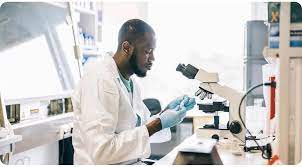The Role of Lab Technicians in Modern Healthcare
Lab technicians play a crucial role in the healthcare industry, working behind the scenes to perform vital tests that help diagnose, treat, and prevent diseases. These skilled professionals are responsible for handling various laboratory equipment and specimens with precision and accuracy.
One of the primary duties of lab technicians is to conduct tests on blood, urine, tissue samples, and other bodily fluids. They follow strict protocols to ensure that the tests are performed correctly and deliver accurate results. These test results provide valuable information to doctors and other healthcare providers, guiding them in making informed decisions about patient care.
In addition to conducting tests, lab technicians are also responsible for maintaining laboratory equipment, calibrating instruments, and ensuring that all safety protocols are followed. They work closely with other healthcare professionals to coordinate testing procedures and ensure that samples are processed efficiently.
Lab technicians must possess strong attention to detail, excellent analytical skills, and a solid understanding of scientific principles. They often work under pressure to meet tight deadlines while maintaining high standards of quality control.
Advancements in technology have transformed the field of laboratory testing, allowing lab technicians to perform a wide range of specialized tests with greater speed and accuracy. With the rise of automation and digitalization in healthcare settings, lab technicians must stay up-to-date on the latest technologies and methodologies to deliver optimal results.
In conclusion, lab technicians play a vital role in modern healthcare by providing essential diagnostic information that drives patient care decisions. Their dedication to accuracy and precision ensures that patients receive timely and reliable test results, contributing to improved health outcomes across the globe.
“Pathway to the Lab: Essential Qualifications for Aspiring Lab Technicians”
3. “A Day in the Life of a Lab Technician: Common
- What is a lab technician and what do they do?
- What qualifications are required to become a lab technician?
- What are the typical duties of a lab technician?
- How important are lab technicians in healthcare?
- What advancements in technology have impacted the role of lab technicians?
What is a lab technician and what do they do?
A lab technician is a skilled professional who plays a critical role in the healthcare industry by conducting various tests on samples such as blood, urine, and tissue to assist in the diagnosis and treatment of diseases. Their responsibilities include handling laboratory equipment, following strict protocols to ensure accurate test results, maintaining instruments, and adhering to safety procedures. Lab technicians work closely with healthcare providers to analyze and interpret test data, ultimately helping to improve patient care outcomes through precise and reliable diagnostic information. Their attention to detail, analytical skills, and commitment to quality make them essential members of the healthcare team.
What qualifications are required to become a lab technician?
To become a lab technician, individuals typically need to have a minimum of an associate degree in medical laboratory technology or a related field. Some employers may require certification from professional organizations, such as the American Society for Clinical Pathology (ASCP) or the National Accrediting Agency for Clinical Laboratory Sciences (NAACLS). Strong attention to detail, analytical skills, and proficiency in using laboratory equipment are essential qualities for aspiring lab technicians. Additionally, gaining hands-on experience through internships or on-the-job training can further enhance one’s qualifications and readiness for a career in this field.
What are the typical duties of a lab technician?
Lab technicians perform a wide range of essential duties in a laboratory setting. Some typical responsibilities include conducting tests on various samples such as blood, urine, and tissue to assist in diagnosing medical conditions. They meticulously follow protocols to ensure accurate test results and maintain detailed records of their findings. Lab technicians are also responsible for calibrating and maintaining laboratory equipment, ensuring that instruments are functioning properly for precise testing. Additionally, they collaborate with healthcare professionals to coordinate sample processing and adhere to strict safety protocols to maintain a secure work environment. Overall, lab technicians play a critical role in the healthcare system by providing crucial support for diagnostic procedures and ensuring the smooth operation of laboratory processes.
How important are lab technicians in healthcare?
Lab technicians play a pivotal role in healthcare by conducting crucial tests on patient samples to aid in diagnosis, treatment, and disease prevention. Their meticulous work ensures the accuracy and reliability of test results, which are essential for guiding medical decisions and providing optimal patient care. Lab technicians’ expertise in handling laboratory equipment, following strict protocols, and maintaining quality control standards is indispensable in ensuring the effectiveness of healthcare services. Their contribution is fundamental in supporting healthcare professionals in delivering accurate diagnoses and personalized treatment plans, ultimately improving patient outcomes and enhancing overall healthcare quality.
What advancements in technology have impacted the role of lab technicians?
Advancements in technology have significantly impacted the role of lab technicians in recent years. The introduction of automated laboratory equipment and digital systems has revolutionized the way tests are conducted and results are analyzed. From robotic sample handling to high-throughput testing platforms, these technological innovations have increased the efficiency and accuracy of laboratory processes. Additionally, the integration of electronic health records (EHRs) and data management systems has streamlined communication between healthcare providers and lab technicians, facilitating faster turnaround times for test results. Continuous advancements in technology continue to enhance the capabilities of lab technicians, allowing them to adapt to evolving healthcare needs and deliver high-quality diagnostic services.
Tags: accurate results, analytical skills, blood, bodily fluids, calibrating instruments, diagnose, doctors, healthcare industry, healthcare providers, lab tech, lab technicians, laboratory equipment, maintaining equipment, patient care, prevent diseases, protocols, safety protocols, scientific principles, specimens, tissue samples, treat, urine, vital tests
